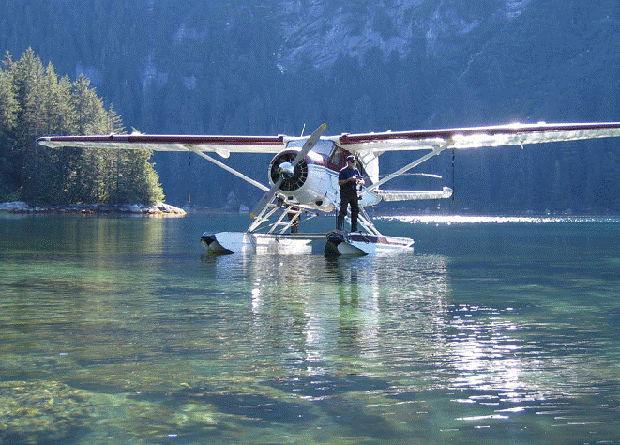America’s public lands are for all of us to use.
While you may be tired of hearing about it, hidden entities are still pushing weak minded state and federal legislators to transfer the ownership of our public lands away from us
March 3, 2015 By Whit Fosburgh
[dropcap]S[/dropcap]portsmen have been called on to defend our public lands a lot lately. Short-sighted proposals have popped up in state legislatures all across the West this winter to transfer the ownership of our public lands away from the American people. Hunters and anglers have been on the front lines, often right on the steps of state capitols, defending more than a hundred years of our national outdoor legacy.
One of those bad ideas has migrated to Washington, with the February 13 introduction of S.490, the Federal Land Freedom Act of 2015. This legislation would turn the management of energy production on millions of acres of American public lands over to the states. The logic behind this bill is that energy production should be the dominant use of public lands, and that literally every barrier should be removed to make sure that production occurs quickly and with little regard for fish and wildlife habitat or access, indeed with little regard for anything.
Should federal public lands be singularly focused on the production of energy?
S.490 is crafted on the principle that states can regulate energy production on federal public lands more efficiently and more effectively than can the federal land management agencies. This may well be true if one believes federal public lands should be singularly focused on the production of energy. State regulations for energy development are generally targeted at maximizing profits on state, and frequently, on private, lands. Our federal public lands were created for a higher purpose than rapid development at all costs. This legislation represents a reversal of the multiple use mandate that has been a foundational principle on federal public lands for more than a century. The American people own these lands and the American people must insist on having a say in their long-range management.
 Energy development clearly has a place on federal lands, but it must be balanced with other uses and the public has a right to make its voice heard in that management. The Federal Land Freedom Act, however, makes clear that the public will have no input on public lands decision making when it comes to energy development. The legislation ensures, in no uncertain terms, that the Administrative Procedures Act, the National Historic Preservation Act, the Endangered Species Act, and the National Environmental Policy Act will be specifically cut out of the process for determining where energy production ought to go, and where it ought not to go.
Energy development clearly has a place on federal lands, but it must be balanced with other uses and the public has a right to make its voice heard in that management. The Federal Land Freedom Act, however, makes clear that the public will have no input on public lands decision making when it comes to energy development. The legislation ensures, in no uncertain terms, that the Administrative Procedures Act, the National Historic Preservation Act, the Endangered Species Act, and the National Environmental Policy Act will be specifically cut out of the process for determining where energy production ought to go, and where it ought not to go.
The bill’s proponent is no friend of America’s outdoor folks – his vote is bought and paid for
The notion that underlies this bill, and many of the other land transfer ideas we’ve seen in recent months, is that these federal lands that have not been industrialized are “unused” or “underutilized.” In introducing S.490, Senator James Inhofe (R-OK) said “The states, not the federal government, are the ones best equipped to tend to the extensive unused and unprotected lands across the nation that the federal government has staked a claim to.”
As any sportsmen can attest, the notion that if an area is not industrialized means it is unused is nonsense, and likely spoken by someone who has never left the comfort of his or her vehicle to experience our public lands. It ignores the fact that our public lands are the backbone of the nation’s $646 billion dollar outdoor recreation economy. It ignores the fact that 72 percent of hunters in the west rely on public lands to pursue their passion. And it ignores the fact that wide open places, like Wyoming’s sage country (often referred to as “The Big Empty”) provides critical habitat for 350 different species, from sage-grouse and golden eagles to mule deer and pronghorn.
Hunting, fishing and outdoor recreation power a rural economic boom that won’t ever go bust
The reality is that this lack of development on some of our public lands provides access and opportunity for sportsmen and outdoor enthusiasts from around the country. Hunting, fishing and outdoor recreation power a rural economic boom that won’t ever go bust, so long as we take care of the habitat and the access.
We must help decision makers understand that these lands are far from unused
Hunters and anglers are amongst the strongest champions of federal public lands, as witnessed by the rallies we are seeing across the West opposing selling off or transferring to the states our public lands. We must remain vigilant as well against proposals that don’t go quite so far as wholesale transfer, but that will just as surely forever change the public land landscape.






